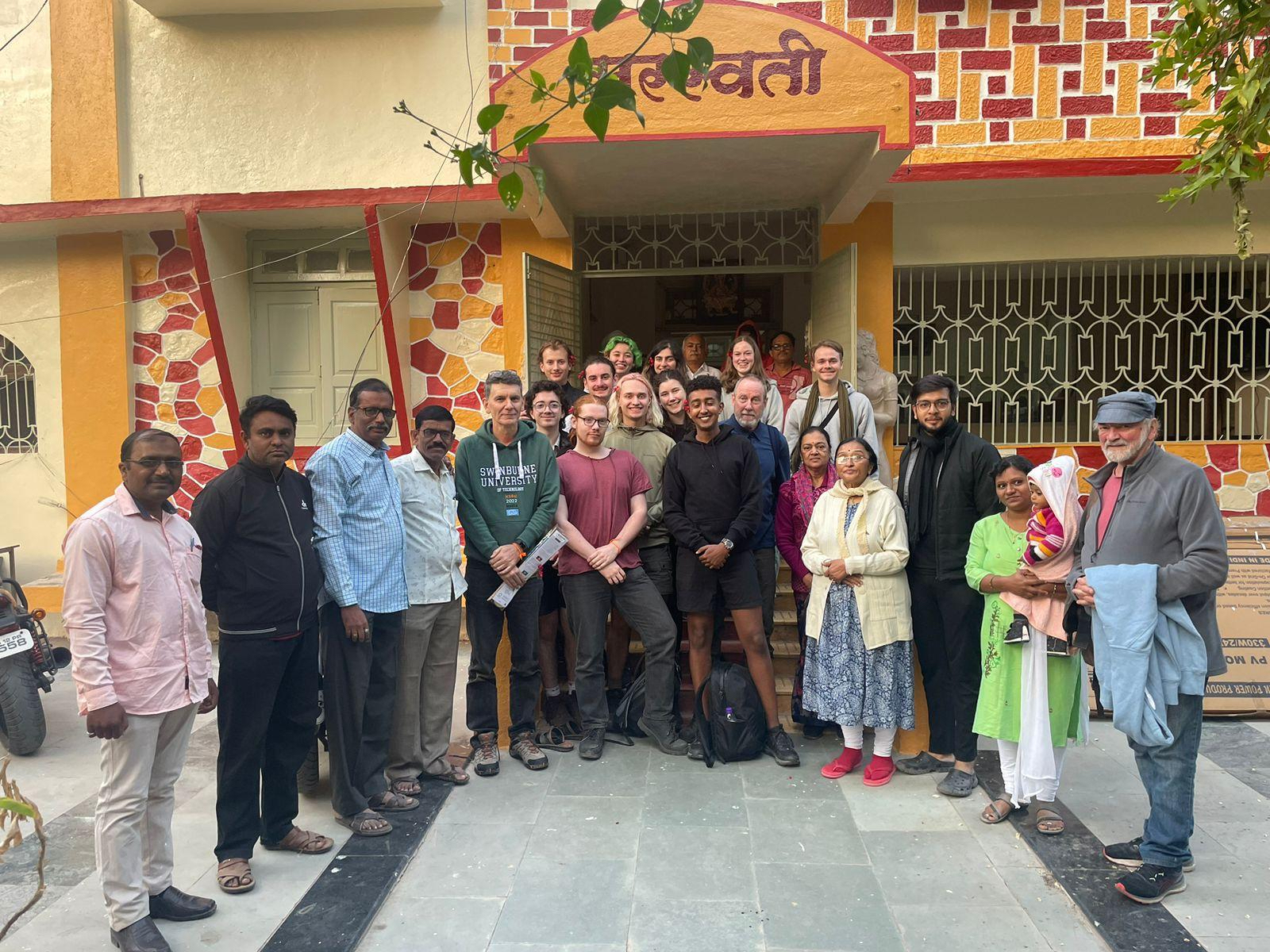Student's International Impact — In India

11 students recently got back from India, where they travelled to help make an impact on rural villages via their IT systems. From Mumbai (Apne Aap and Dharavi) to the remote tribal Satpuda Ranges and approximately 10 days in the village of Pal, the group visited surrounding villages of Jamnya, Mangrul, Mohamandali, Lohara and Khiroda.
They used interpersonal skills and bettered both their communication and understanding of global communities via the trip. We spoke to some of them to get a better understanding of what their top entailed and the lasting effects it had on both them and the communities they visited!
Who are you, why were you on this trip / what did you want to do?
LIADEN: My name is Liaden, and I am in my fourth year wrapping up my Double Bachelors in Design/Media & Communication. I went on this trip to broaden my perspective and immerse myself in a different culture. I was drawn to this study tour for its real and direct impact.
MEGAN: I'm Megan and I'm studying Design. I went on this trip because I've never been to India before, so I thought it would be a great opportunity to travel; but also for learning at the same time and getting credit towards my degree.
JAE: I'm Jae and I'm studying a double degree in Engineering and Computer Science, and I went on this trip to broaden my idea of cultures around the world, and also to share my passion about technology — that I was able to gain through school — with kids in rural villages who probably wouldn't be able to get that experience otherwise.
Why do you believe Swinburne’s relationship with our Indian partners is so important?
JAE: I think the partners are what really shape the trip. The tour guides, the people who organise the trip over there, they really helped us engage with the history of India and the culture; and were able to give translations that we otherwise wouldn't be able to get. And also the partners also allowed us to stay in the village where we were able to interact with the villagers and get an experience that we otherwise wouldn't have been able to do.
What impact do you believe you had on those communities that you visited? Could you please share some of the lasting benefits your group implemented?
JAE: Well, while we were there, the 10 days that we spent in Pal, in the villages, we were able to provide them with 9 laptops and 13 solar lanterns, which allowed them to have the resources to be able to continue learning when it's dark, when they run out of power and also be able to learn about technology. And while we were there, we also were able to run workshops with over 300 kids in these villages. And when we had time, we were we got to look at the current it and help fix anything that was broken so that they could continue learning, which was amazing.
Would you recommend that other Swinburne students apply for these types of experiences in the future?
MEGAN: I would 1,000% recommend this trip to others because I just had the most incredible time.
JAE: Yes, 100%. Being able to interact with these villagers is an experience I never would have been able to get otherwise. And also just seeing the smile and the joy on these kids faces, when they were just able to draw a shape on the screen, was truly something I'll never forget.
How do you believe it impacted your journey/perspective as a student?
LIADEN: This study tour impacted my perspective as a student by highlighting the simple privileges I take for granted. The simple privilege that, as a young woman growing up in Australia, I was raised to value my education and taught that I can achieve whatever I set my mind to. I will never forget the young girls I met in Pal and other rural villages who were overjoyed by simply learning how to use PowerPoint, and it has truly further motivated me to not let my privilege be wasted.
You said that you worked on 7 or 8 different projects during your trip – what was your favourite to work on?
JAE: Definitely it would have to be the Gender Equity workshops. Being able to work with the girls in these villages that are often sidelined was amazing and being able to share our dreams with them, and what we are able to do in Australia, and getting them to share their dreams with us really changed my perspective on the privilege that we have. It was also really cool to see their confidence grow as they were able to use these computers and type on them, which we often take for granted, but also their confidence and seeing what they would be able to do if they just work hard enough.
MEGAN: My favourite part of the trip was the Gender Equity classes we ran. It was incredibly rewarding to be teaching the girls and also to see them wanting to break against the gender bias.
You spent 2 weeks in Mumbai and Pal, but if you had to pick one moment that resonated with you the most from the whole trip, what would it be?
JAE: That's hard to say because we did so much, but I'd probably have to say the organizations that we were able to visit there who work so hard to improve the communities around them, especially the visit to Grange, I'll never forget visiting them and seeing the hard work they put in to building up the communities around them, using all of these different sustainable practices, going out, collecting, distributing second hand items and providing jobs to people who are less fortunate and giving them the job to repurpose these second hand items that are otherwise would be thrown in the trash and then giving those to rural communities who would never be able to access these otherwise.

